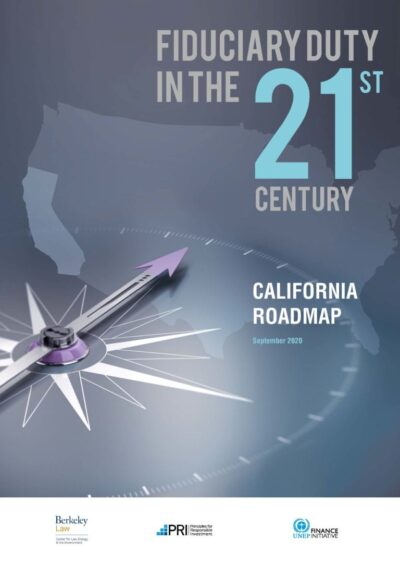Region: International
Taylor Swift and Climate Change Songs
Pop culture is how many of us process what’s going on in the world. That’s why Taylor Swift’s next ‘era’ should include a climate anthem.
We don’t need Taylor Swift to “fall in love with a climate scientist,” we just wish she’d write a song about the climate crisis. When the breathless coverage of her relationship with Travis Kelce first boosted ratings for NFL football, some suggested Swift should use her star power for good by “dating a climate scientist.” …
Continue reading “Taylor Swift and Climate Change Songs”
CONTINUE READINGGov. Newsom Goes to China to Talk Climate
Here’s what Newsom will see, say, and do on his China trip. He should also be listening for what California can learn from China.
We’re learning more about what Gov. Gavin Newsom will see, say, and do on his trip to China. All told, Newsom is slated to visit 6 cities in 5 provinces, including Guangdong, Jiangsu, and Shanghai—where he’s signing a new climate agreement. He plans to meet with representatives from the Chinese Ministry of Ecology and the …
Continue reading “Gov. Newsom Goes to China to Talk Climate”
CONTINUE READINGThe Not-So-Good News About Carbon Offsets
Recent studies show the significant limits to some carbon offsets. What’s that mean for tropical forest jurisdictions?
In case you missed it: there’s some good news about Amazon deforestation continuing to plunge. Jason Gray and I spoke recently about why tropical deforestation is down in Brazil, Colombia, and Indonesia. That’s good news because deforestation of tropical forests is a huge source of greenhouse gas emissions. The World Resources Institute’s Forest Pulse report …
Continue reading “The Not-So-Good News About Carbon Offsets”
CONTINUE READINGGermany’s Role in Climate Policy
A short history of climate action in Europe’s economic powerhouse
We need to understand the history of climate action as we plan for the future. In terms of climate leadership, Americans tend to think of California. At the global level, however, Germany has its own claim to a leadership role, particularly in its early support for renewable energy. It has helped to shape EU climate …
Continue reading “Germany’s Role in Climate Policy”
CONTINUE READINGThe Overshoot Commission Addresses Geoengineering
The Commission tries to make it OK to talk about – not do – solar geoengineering. Its report proposes a moratorium, coupled with efforts to carefully build knowledge.
In this, my third post on the recently released report of the Climate Overshoot Commission, I’ll discuss their treatment of the most challenging and controversial part of their mandate, Solar Geoengineering or Solar Radiation Modification (SRM). As I noted in my introductory post on the Commission, I served as an advisor to the Secretariat and …
Continue reading “The Overshoot Commission Addresses Geoengineering”
CONTINUE READINGNo, There’s No Scientific Conspiracy About Climate Change
Anyone who thinks otherwise has never met a real live academic. We can barely conspire about where to eat lunch.
Among the host of conspiracy theories out there, a perennial one depicts climate science as a global hoax perpetuated by scientists. There are thousands of climate scientists around the world, which is an awful lot of people for a secret conspiracy. But even if there were only forty or fifty, a successful conspiracy of any …
Continue reading “No, There’s No Scientific Conspiracy About Climate Change”
CONTINUE READINGA Radical Proposal Hidden in Plain Sight in the Overshoot Commission Report
The Commission’s recommendations on emissions include a fossil phaseout much stronger than anything now proposed, which could materially advance climate action.
Continuing my discussion of the report of the Climate Overshoot Commission released last week, today I dig into their recommendations on mitigation. As you may recall, the Commission’s informal (but serious) job description was to speak of elephants in the room and unclothed emperors: to say things that are true and important about climate risks …
Continue reading “A Radical Proposal Hidden in Plain Sight in the Overshoot Commission Report”
CONTINUE READINGThe Climate Overshoot Commission Releases its Report
A dozen global leaders weigh in on the risk of exceeding the Paris temperature targets and what it means for climate response.
The Climate Overshoot Commission recently completed its work, releasing its report at the United Nations last Thursday, September 14. This report comes in conjunction with the U.N. General Assembly and a collection of high-level climate and environment events, including the Sustainable Development Goals Summit, 18-19 Sept, and the Climate Ambition Summit, 20 Sept. The Climate …
Continue reading “The Climate Overshoot Commission Releases its Report”
CONTINUE READINGGovernor Gavin Newsom announces he will sign landmark climate disclosure bills SB 253 and SB 261!
SB 261 first proposed and drafted by CLEE Climate Risk Initiative
Breaking news! Governor Gavin Newsom just announced on stage at New York Climate Week that he will sign both of the landmark greenhouse gas emissions and climate risk disclosure bills, #SB253 (Wiener) and #SB261 (Stern), the later of which was first proposed and then drafted by our Climate Risk Initiative at the Center for Law, …
CONTINUE READINGCLEE-Proposed Climate Risk Disclosure Legislation Passes CA Legislature
SB 261 results from CLEE report recommendation
The California Legislature passed two path-breaking climate risk disclosure bills this week. Both bills now go to Governor Gavin Newsom’s desk where he has until October 14th to sign them. Senate Bill 261 (Stern) requires major corporations to disclose climate change related financial risks, using a framework consistent with that of the Task Force on Climate …
Continue reading “CLEE-Proposed Climate Risk Disclosure Legislation Passes CA Legislature”
CONTINUE READING










